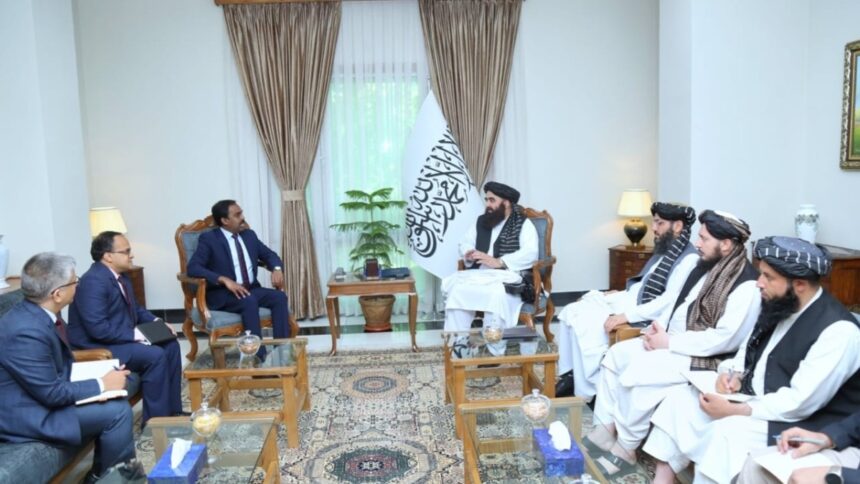The Indian government has briefed the Taliban regime in Afghanistan about Pakistan’s links to the Pahalgam terror attack that took place on April 22. Taliban’s acting foreign minister Mawlawi Amir Khan Muttaqi strongly condemned the attack and emphasised the need to punish the perpetrators.
The meeting came amid growing tensions between India and Pakistan following the terror attack in Pahalgam that killed 26 people, mostly tourists. After the attack, India has downgraded its diplomatic ties with Pakistan.
He had a meeting with Ministry of External Affairs (MEA) secretary Anand Prakash on Sunday. During this meeting, India conveyed to Muttaqi that New Delhi is ready to restart work on its projects in Afghanistan and also invest in other infrastructure projects, as per a release by MEA.
Indian envoy Anand Prakash voiced optimism for enhancing collaboration between the two nations across multiple sectors.
Muttaqi again underlined the need for normal issuance of Indian visas to Afghan businessmen, patients, and students. He also emphasised the expansion of diplomatic and economic relations between the two countries. He also encouraged Indian investors to take advantage of the investment opportunities in the country, as per Kabul.
Meanwhile, Nawaz Sharif, Pakistan’s former prime minister and chief of the ruling Pakistan Muslim League-Nawaz (PML-N), wants the current government in Islamabad to use diplomatic channels to ease tensions between India and Pakistan post the Pahalgam terror attack, as per Pakistani media reports.
As per The Express Tribune, Nawaz wants his brother Shehbaz Sharif’s government to use all the available diplomatic resources to restore peace between India and Pakistan. The former Pakistan PM is not keen on taking an aggressive stance against India.
Shehbaz reportedly briefed Nawaz on Sunday during a meeting in Lahore about the decisions taken by the National Security Committee (NSC) in the wake of the suspension of the Indus Waters Treaty (IWT) by India. “India’s unilateral decision to suspend the water treaty has heightened the risk of a war in the region,” Shehbaz said.
Last week, India decided to hold the Indus Waters Treaty (IWT) in abeyance. On April 24, India’s Water Resources Secretary Debashree Mukherjee officially informed Pakistan’s Secretary of Water Resources, Syed Ali Murtaza of the Indian government’s decision to place the IWT 1960 in abeyance with immediate effect.
The letter noted several shifts, including significant demographic changes and India’s focus on clean energy, which have modified the core assumptions of the agreement.








